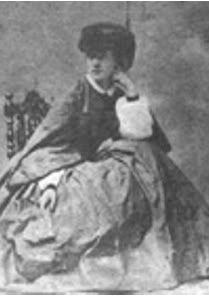
These days there are very few places on Earth we have yet to touch. The odd forest clearing deep in West Papua maybe, or a frozen valley in a remote corner of Antarctica. At the moment we live in an age of Technological discovery - every week new products are released or tested, things get faster, smaller, more advanced. In wasn't always thus - previous centuries were dominated by the age of Geographical discovery, where men would attempt risky trips to fill in the blank bits of maps. This has always intrigued me, the desire and determination to remove yourself from everything you know in order to know just a little more.
Come 2006, all the rivers are named, satellites have photographed the planet to the extent that a new species of mouse becomes headline news. Recently I've been reading about several people who lived back when there were still vast tracts of the Earth undiscovered (at least by those who could record it for others). Starting with this post, I'm going to summarise as best I can some of these people - most of whom you will probably have never heard of. For a start, they weren't always men. Alexandrine Petronella Francina Tinne was the first woman to attempt to cross the Sahara desert, in a time when women were very much supposed to be doing less exhausting things. Her trips were frequently long and arduous, and as was sadly so often the case in that time - her final trip came to a quite awful end.
Born in 1839 in the Netherlands, Tinne had a relatively comfortable childhood (her parents were wealthy merchants). Allowed by them to travel widely, she became fluent in languages and developed a desire to explore further. Her father died when she was very young (he had been 65 when she was born), and her mother decided to take the young Alexine to Africa. Together they explored Egypt on a barge with two support boats laden with servants - the way Victorian ladies were supposed to travel. This proved to be a trigger for Alexine, and she returned to Africa time and again. Accompanied by her Aunt Adriana, the intrepid women attempted to find the source of the Nile, and explore the Sudan region where no European had been before.
In 1863 they tried to find the Western reaches of the Nile, and the mythical large lake at the centre of the continent. By this time their party had been joined by a couple of Barons, and the group abandoned the boats and crossed the desert to find their objective. The going was atrocious - their armed guard mutinied and left them, the monsoon arrived early and destroyed their camps, they were ravaged by disease and mosquitoes. Having to shelter with a local tribe, the party slowly began to wither - the Barons were the first to die, then Alexine's mother. Desperate, the survivors limped to Khartoum, where Aunt Adriana also succumbed to malaria. Alexine was distraught, and returned to Cairo.
Over the next four years she regained her resolve, publishing her late mother's journals and travelling more around North Africa. Studying the region in detail, in 1869 she decided to revisit the Sahara and find the source of the Congo River - travelling from Tripoli via Lake Chad. Long a source of debate, the Congo was one of the Holy Grails of Victorian exploration. However, like many of her peers, it proved a challenge too far. Setting out with two huge camel-drawn iron water tanks, her party traversed the vast desert into the territory of the Tuareg - where only two Westerners had ever set foot before her. It seems her faith in the tribe was badly misplaced - a rumour had started that her iron tanks were full of gold. Rival factions were also warring in the area. On the 1st of August 1869 her small party was attacked and quickly slaughtered. Alexine had her hand cut off, and was left to bleed to death in the desert.
Outside of the Netherlands, hardly any people have heard of her. This is as great a tragedy as the manner of her early death (she was 29). Partly due to the sheer number of 'boys own' style tales of endeavour from that period, and also due to another piece of terrible misfortune - her collection of papers and specimens stored in England for safekeeping were destroyed during the Blitz. She may have been able to travel because of her priviliged upbringing, but put herself in danger to discover answers to the great questions of the time. Had she lived, she may have become the first to find these answers. She deserves to be mentioned in the same breath as men like David Livingstone - who said of Alexine "But none rises higher in my estimation than the Dutch lady, Miss Tinne, who after the severest domestic afflictions, nobly persevered in the teeth of every difficulty."
Biography of Alexine Tinne
Her Wikipedia entry